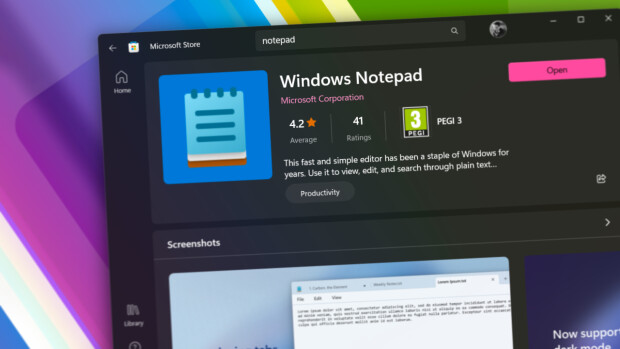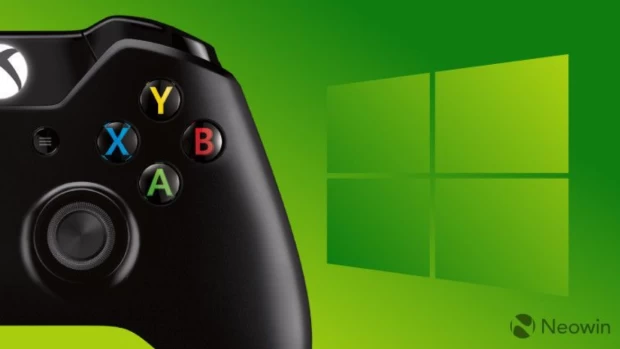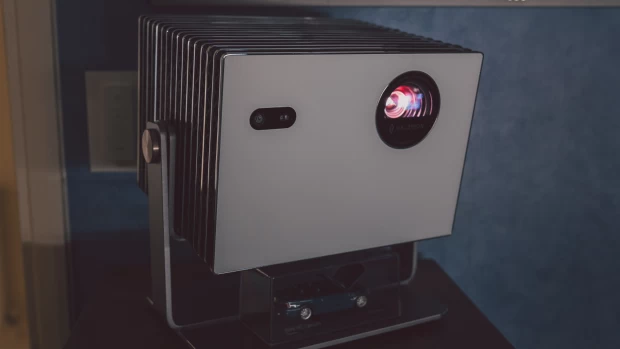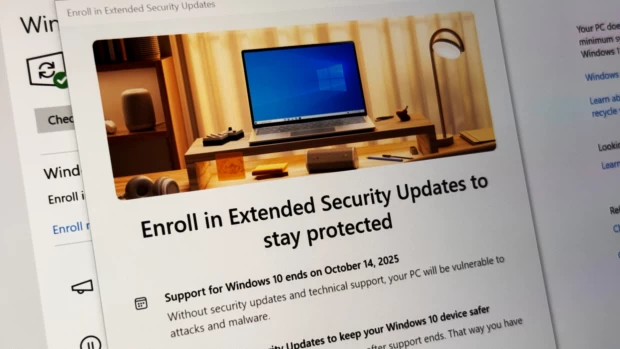Linus Torvalds has released the seventh release candidate of Linux 6.16. It's most likely going to be the last version before the stable release.
Linux kernel RSS
Linus Torvalds, head of the Linux kernel, has released a new kernel development build - Linux 6.16-rc3. It brings updates to the core system as well as GPU and networking drivers.
Linus Torvalds has publicly released Linux 6.15 for public use. Here are some of the changes included for hardware and software from the past week.
Linus Torvalds has released the seventh release candidate of Linux 6.15. He said last week was eventful but brought under control, meaning Linux 6.15 is very likely next week.
Linus Torvalds has just released Linux 6.15-rc6, noting a concerning trend. He also revealed that he expects the final release of Linux 6.15 on May 26, 2025.
An unchecked Microsoft change broke the upcoming Linux 6.13 kernel on Intel and AMD CPUs, leading to annoyance and anger.
With Ubuntu 24.10, Canonical sets a new pace for the Linux desktop, featuring improved performance, security, and a focus on user consent through the new Security Center.
Ubuntu's HWE kernels will soon be covered by the Ubuntu Pro Livepatch service. This will mean that updates to these kernels will not require reboots to complete the installation, reducing downtime.
Ubuntu 23.04 will ship with Linux 6.2 instead of Linux 6.1. The newer kernel will likely be backported to Ubuntu 22.04 as part of a hardware enablement (HWE) update, increasing new hardware support.
The Linux kernel could drop support for i486 processors in the near future. Linus Torvalds floated the idea, suggesting that the work that goes into maintaining support for i486 just isn't worth it.
Microsoft has started work on XDP for Windows, which is based on a popular Linux project that enables low latency and high throughput for apps. The firm's implementation is open-source on GitHub.
Linus Torvalds, the head of Linux, is super-pleased with how smoothly things have gone so far for Linux kernel 5.18 for stuff like adding features and launching new release candidates.
LineageOS 19 has been released for select devices. The Android 12-based ROM brings plenty of new features and improvements but older devices could be left behind due to kernel limitations.
Linus Torvalds is not at all a fan of GitHub merges as he revealed recently in a response to a pull request. Torvalds thinks GitHub is mostly "fine", "but merges is not one of those things".
The Linux Technical Advisory Board (TAB) has published its detail findings about the "hypocrite commits" submitted to the Linux kernel by researchers from the University of Minnesota.
Following the ban of the UMN from contributing to Linux after some of its researchers introduced buggy patches, an apology has been issued today by the research team hoping to renew friendly terms.
Greg Kroah-Hartman, one of the heads of the Linux kernel dev team, has banned the University of Minnesota from further contributing as the latter had injected questionable patches for research.
Canonical has announced the release of Ubuntu 20.04.2 LTS. The new ISO brings all the latest security and software updates and it includes a newer Linux kernel featuring better hardware support.
Tails OS 4.15 has just been released bringing very important security updates for the Tor Browser. It also adds support for more hardware with the inclusion of the newer Linux 5.9.15 kernel.
The ISOs for Linux Mint 20.1 have been approved for release according to the project's website. This means that we should be able to download Linux Mint 20.1 in just a matter of hours or days.
Greg Kroah-Hartman, a leading Linux kernel maintainer, has announced that Linux 5.10 will be the next Long-Term Support release. Due in December, it should get updates until December 2026.
Kali Linux recently released the Win-KeX desktop environment for WSL 2. Here's a quick guide on how to install it and Kali Linux from scratch and how to upgrade WSL 1 Kali Linux installations.
The Linux kernel developers have switched links in the documentation over to HTTPS. The move aims to prevent man-in-the-middle attacks against kernel developers, luckily no such attacks have occurred.
The Linux Mint project has tested and approved the Linux Mint 20 ISO images and third-party mirrors have begun hosting the ISOs in anticipation of the final announcement from the Mint team.
The Linux Mint team has started pushing Linux Mint 20 beta images to third-party mirrors. The new update comes with several updates to packages like LibreOffice and the Linux kernel.
Canonical has released the Ubuntu 20.04 LTS beta. It comes with an updated GNOME desktop, a newer Linux kernel which adds support for newer hardware, and an updated Yaru theme to enhance Ubuntu's UI.
Tails OS 4.4 has just been released. It fixes several security issues and it's advised that users upgrade immediately. Just boot Tails and connect to the net, you should be notified about the update.
A comment in the Android Open Source Project (AOSP) repository hints at the existence of a Pixel 5. The device, codenamed 'bramble', is part of the trio that Google is expected to launch this year.
Linux Mint 19.3 is finally available for download. The new update is the last in the 19.x series before work begins on Linux Mint 20. This update contains several new features and the new branding.
The Debian Project has announced in its mailing list that Debian 10, codenamed Buster, will be released to the public on July 6. It has called on developers to submit last-minute bugs before June 25.
The Fedora Project has released Fedora 30. The new update shakes up the available editions and comes with many big changes on desktop, namely with the release of Fedora Silverblue.
Linux Mint 19.1 'Tessa' has been made available for public release. An upgrade path for those on Mint 19 is planned and will become available very soon but it hasn't been detailed just yet.
The Linux Mint project has pushed the betas for the upcoming Linux Mint 19.1 release. There are still bugs lingering so if you run into any, be sure to report them so they can be fixed.
Linus Torvalds has decided to step back from maintaining the Linux kernel, albeit temporarily. He cited his behaviour for the break and now plans to seek assistance to help with his professionalism.
The Debian project has announced the fifth update to its current stable release, Debian 9, codenamed "Stretch". The new disk images come with all the latest security and bug fixes.
The Debian project has announced the fourth point release of its current stable release, Debian 9, codenamed "Stretch". The new disk images come with all the latest security and bug fixes.
The Linux distribution, Tails, which focuses on privacy, has been bumped to version 3.5. The update brings Tor Browser 7.5 and a new Linux kernel which mitigates more fully against Spectre.
Several versions of the Linux kernel have been patched with Retpoline which was made by a Google employee to mitigate against Spectre while keeping performance levels the same as they were before.
The team behind Linux Mint has put out a new blog post informing users how they can patch their software in order to fend off any attacks which utilise Spectre or Meltdown. A kernel patch is coming.
The popular Linux distribution, Ubuntu, will receive patches for the Meltdown and Spectre vulnerabilities by Janurary 9th. Canonical has been hard at work over the holidays crafting a patch.













































